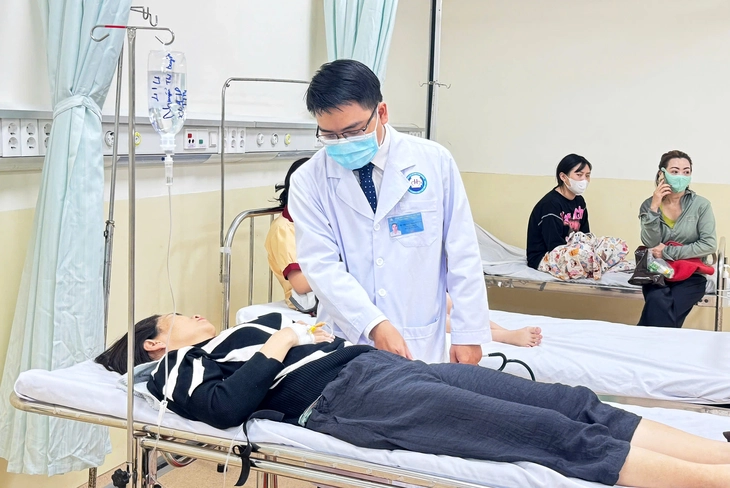
Doctors at the emergency department are examining and treating patients - Photo: THU HIEN
Currently, although hospitals have an unwritten rule of "saving people first, hospital fees later", in the context of many hospitals being financially autonomous, the cost problem is increasingly tense, all medical interventions are costly and hospital fees are a "headache" for many medical facilities.
Human life comes first, but...
According to Tuoi Tre's records on the morning of May 6, at the emergency department of many hospitals in Ho Chi Minh City, most patients do not have to pay advance hospital fees when receiving emergency care, such as Gia Dinh People's Hospital, Binh Chanh District Hospital, People's Hospital 115... Many relatives and patients said that when entering the emergency department, in severe cases, doctors and nurses prioritize treatment first, then ask for advance hospital fees.
Mr. THK (47 years old) said that a relative was taken to the emergency room of Gia Dinh People's Hospital. Doctors and nurses prioritized treatment first, and only after the patient's health was stable did they wait for their turn to be called to pay the hospital deposit.
"In my opinion, the principle is to always prioritize the patient's life above all else, and consider other matters later. My family member was injured and taken straight to the emergency room, and the doctors treated him immediately. I felt very secure. This eased the anxiety of the family and the doctors were able to focus on saving the patient," said Mr. K.
One afternoon in early 2025, Mr. Truong Cong Son (30 years old, Hanoi ) unfortunately had a motorbike accident on his way to work. The strong collision caused him to have a serious injury to his leg, although he was conscious, he could not move.
Luckily, a passerby took him to the 19-8 Hospital for emergency care. "As soon as I arrived at the hospital, the doctors and nurses took me to the emergency room. At that time, I had lost a lot of blood and had no strength left. I only had time to read my relatives' phone numbers and then fainted," Son recounted.
He was given emergency treatment by doctors, he had to have a blood transfusion, and had surgery on his leg after the injury. A few hours later, his family arrived at the hospital, where they informed him of his condition and instructed him to pay the hospital deposit. "If I had to wait for my family to come to receive emergency treatment, it would have been more dangerous than good. Thanks to the timely emergency treatment from the doctors, I was able to recover well," said Mr. Son.
In fact, in Hanoi, medical facilities all accept emergency cases even if there are no relatives. On Facebook, Viet Duc Hospital, Bach Mai Hospital, Duc Giang General Hospital... often post information "finding relatives" for patients. But hospitals are autonomous, so sometimes they cannot collect hospital fees, if they cannot find the patient's relatives, who will pay the hospital fees?
Need emergency relief fund
Speaking to Tuoi Tre, Dr. Pham Nguyen Anh Vu, deputy director of Binh Chanh District Hospital (HCMC), said that the hospital's principle is to prioritize emergency care for patients first, regardless of whether they are accompanied by relatives or not, or in cases where the patient is homeless and does not have identification papers.
Accordingly, when admitted to the emergency room, doctors will record administrative information and treat injuries first. After the patient is stable, if additional techniques are needed, there is usually only a temporary advance of a few hundred thousand or 1-2 million VND.
"Regardless of the night, if a patient is in need of a CT scan, we will prioritize the best treatment for the patient, and then contact the family. In the case of patients in difficult circumstances, we will take money from the fund for caring for poor patients (contributed by benefactors) to pay their hospital fees. Since the beginning of 2025, there have been many cases of support from 20-30 million VND, and there are even doctors who pay out of their own pocket to support patients," said Dr. Vu.
However, according to Dr. Vu, the patient care fund is also limited, and there are cases where patients "forget" or intentionally do not pay the hospital fee after emergency treatment. Although it does not happen often, it is not rare, and the hospital encounters this almost every month.
In these cases, the hospital can only let it go and pay out of pocket to compensate the patient because there is no other way to handle it, especially for patients without health insurance cards.
A provincial hospital leader affirmed that emergency care is always the top priority in the hospital. Patients will receive health care first and not have to wait to pay hospital fees as in other normal inpatient treatment cases.
"But in reality, each emergency case without relatives or with a very serious condition, requiring the use of many expensive drugs and supplies... is a financial risk. Because after that, if no one can pay, the hospital will have to bear this cost. In many cases, the hospital has had to pay the emergency hospital fee because the patient cannot pay," he said.
The "defensive" mentality causes many medical facilities to make requests such as signing a commitment, calling relatives, and even making an advance payment before performing specialized techniques. This can indirectly cause patients to lose the "golden time" in emergency care, at the cost of risking their lives.
To solve this problem, a medical expert said that Vietnam needs to build a systematic emergency funding mechanism, so that individual medical facilities do not have to "weigh" between saving lives and... keeping funds. In particular, it is possible to set up an emergency fund at each hospital (or at the health department), for cases with unknown relatives and unable to pay immediately. The fund can be raised from socialization, the Red Cross...
In addition, there should be detailed guidelines on the classification of "true emergencies" and more flexible admission, treatment and payment procedures. Strengthen supervision and strict handling if hospitals refuse emergency treatment for financial reasons, and protect medical staff in sensitive situations.
When do patients have to pay hospital fees in advance?
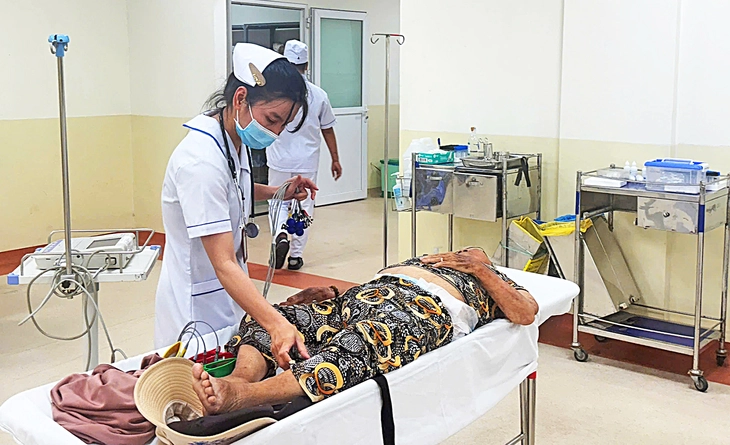
Nurse checks and gives first aid to patient - Photo: T. THIEN
Previously, the Ministry of Health had a written response to the petition of voters of Quang Nam province after the 8th session of the 15th National Assembly.
According to the feedback, many people have to pay in advance when examining and treating patients, in some cases the advance payment is even double the actual hospital fee, causing difficulties for patients and their families. It is recommended that the Ministry of Health research appropriate policies, creating favorable conditions for people to examine and treat patients conveniently, especially poor patients and those in difficult circumstances.
Responding to the above content, the leader of the Ministry of Health said that Directive 06 from 2016 requires hospitals not to collect advance payments from people with health insurance cards when examining and treating outpatients, especially in emergency cases. For inpatients, hospitals only collect advance payments in cases where high-cost treatment techniques are needed and this collection does not include the part paid by health insurance.
According to the provisions of the Law on Medical Examination and Treatment 2023, emergency treatment must be performed on the basis of assessment, classification and application of technical and professional measures appropriate to the patient's condition.
"In case it is necessary to apply emergency measures without the consent of the patient's representative, the person in charge of professional expertise of the medical examination and treatment facility or the person in charge of the medical examination and treatment facility has the right to decide.
Medical examination and treatment facilities are responsible for prioritizing the best conditions in terms of human resources, medical equipment, and medicine for emergency patient care and transferring emergency patients to appropriate medical examination and treatment facilities," the Law on Medical Examination and Treatment clearly states.
However, hospitals still have the right to collect advance payments after the patient's condition has been stabilized, especially in cases where there is no health insurance or the patient's identity is unknown. This creates a gray area in reality: many cases, although called "emergencies", are delayed due to confusion in the verification - payment - financial responsibility stages.
Source: https://tuoitre.vn/tam-ung-khi-cap-cuu-khong-de-benh-vien-lan-tan-thu-tuc-dau-tien-20250507064536996.htm




![[Photo] The Government Standing Committee works with ministries and branches on the real estate market situation.](https://vphoto.vietnam.vn/thumb/1200x675/vietnam/resource/IMAGE/2025/5/24/e9b5bc2313d14c9499b8c9b83226adba)


![[Photo] Ho Chi Minh City holds funeral for former President Tran Duc Luong](https://vphoto.vietnam.vn/thumb/1200x675/vietnam/resource/IMAGE/2025/5/24/9c1858ebd3d04170b6cef2e6bcb2019e)
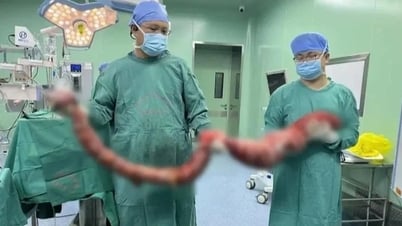




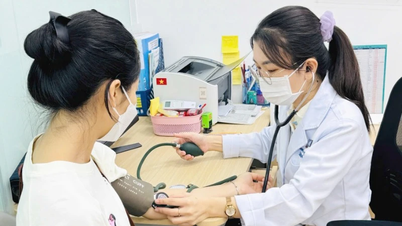














![[Photo] Party and State leaders visit former President Tran Duc Luong](https://vphoto.vietnam.vn/thumb/1200x675/vietnam/resource/IMAGE/2025/5/24/960db9b19102400e8df68d5a6caadcf6)














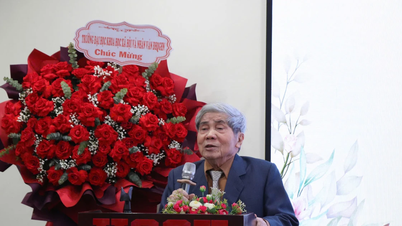















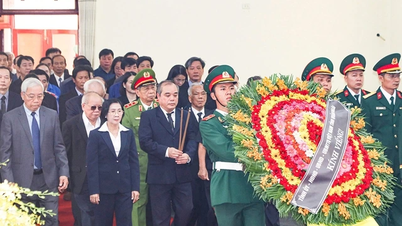



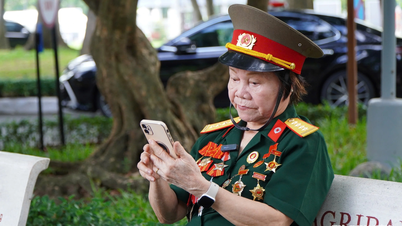
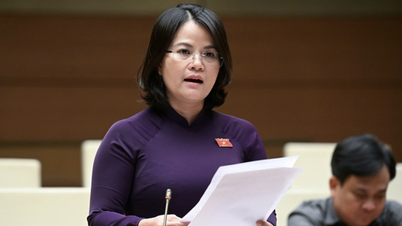
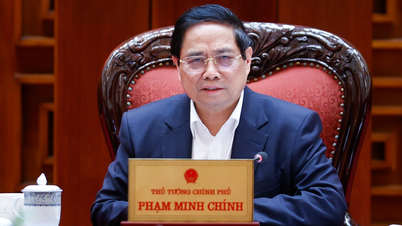











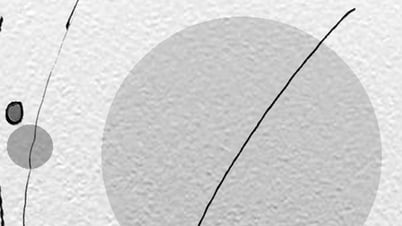



















Comment (0)